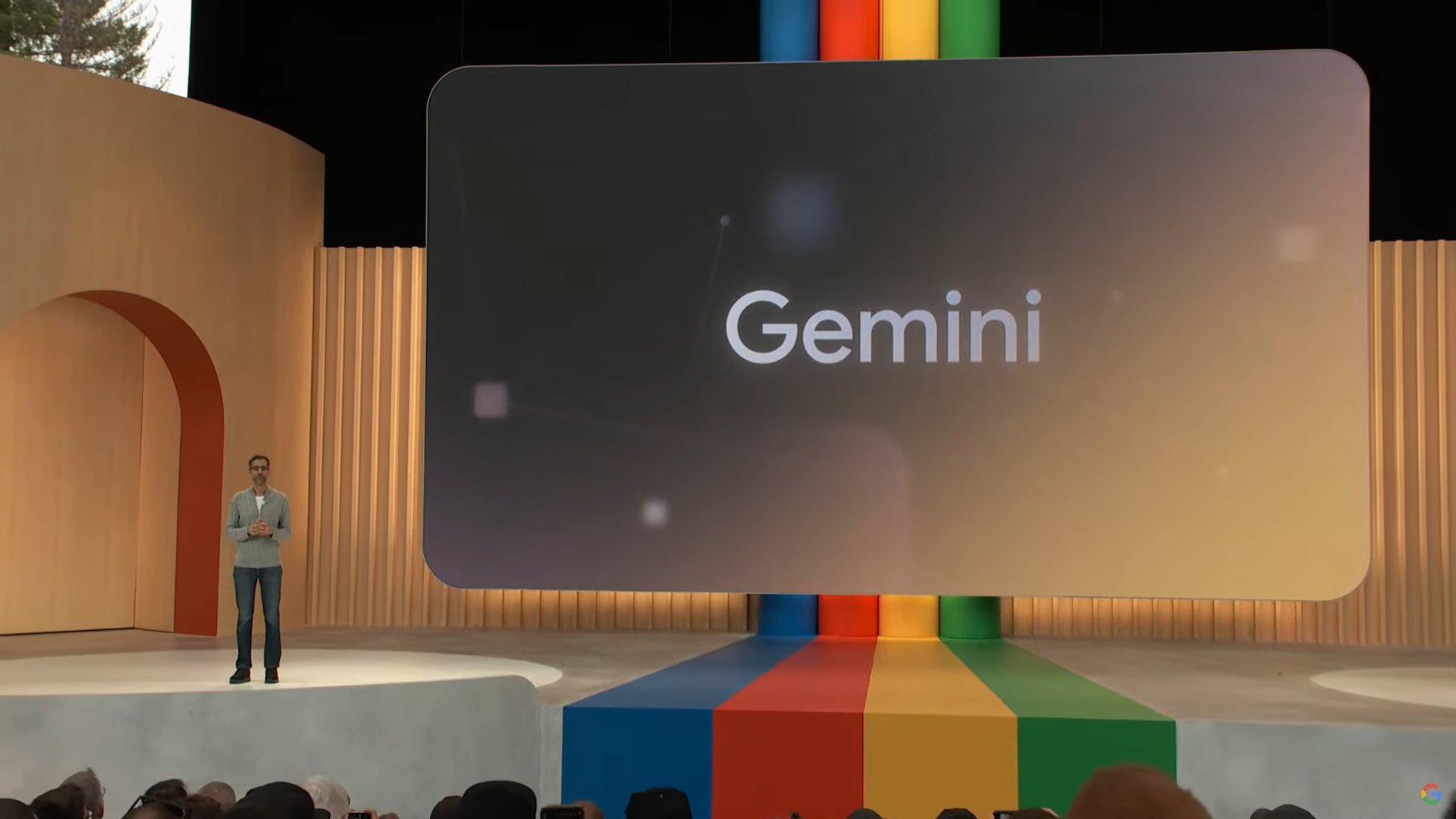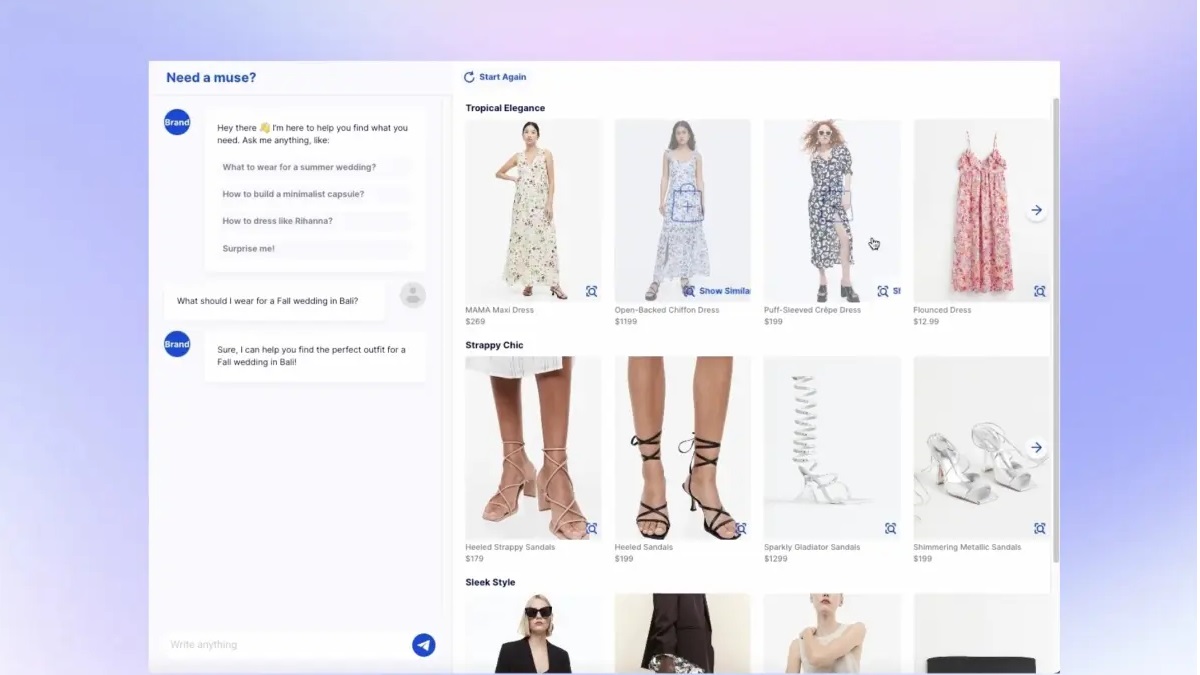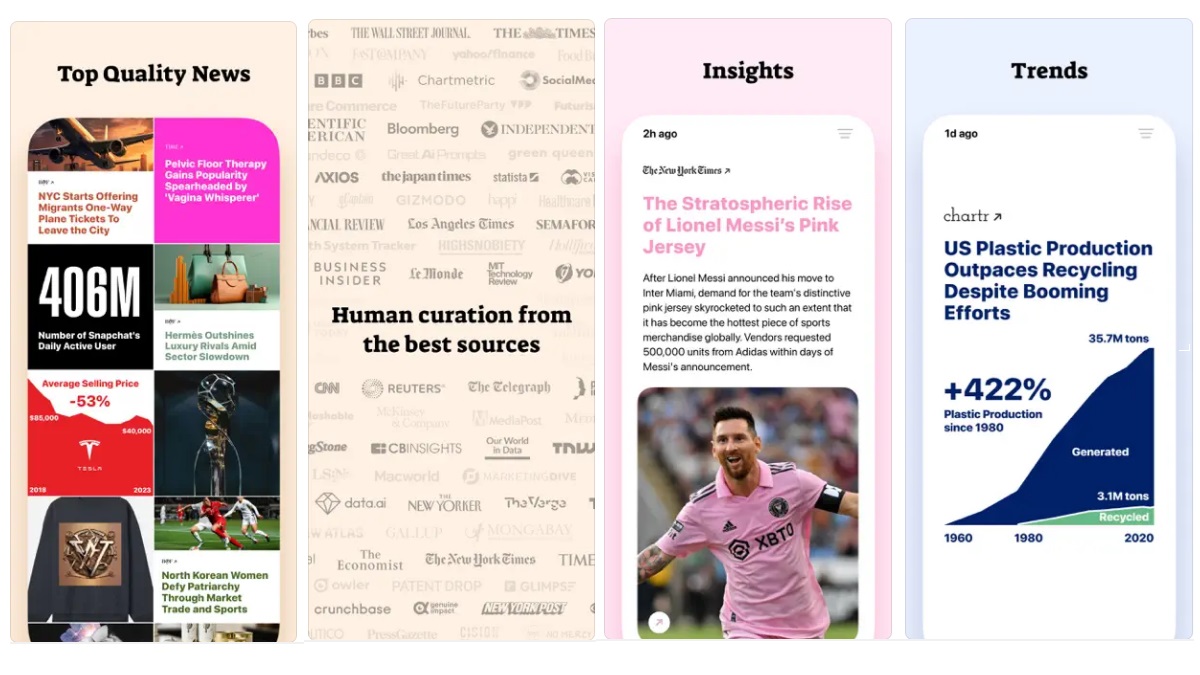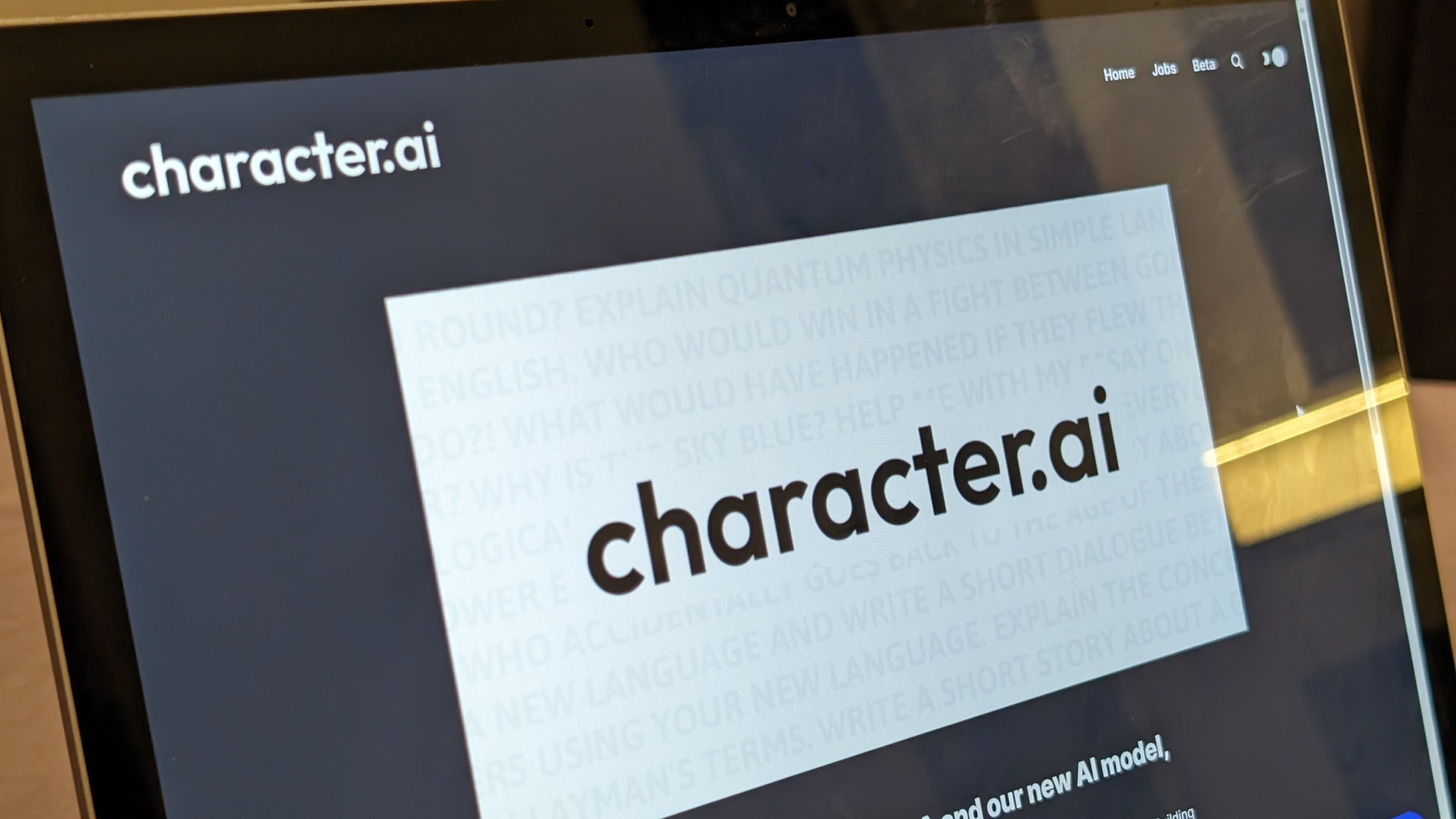Affiliate links on Android Authority may earn us a commission. Learn more.
What's new in AI this week? Google releases its new GPT challenger, and more

Welcome to the fourth edition of What’s New in AI, our weekly update where we bring you all the latest AI news, tools, and tips to help you excel in this new brave new AI-driven world.
AI in the news: Google releases a new LLM, and so much more
This week was as busy as ever for AI, and before I could even finish writing this edition, I had to add more news! Google has launched its new LLM, Gemini, which aims to take on ChatGPT in a bigger way. Gemini will come in three different sizes for various workloads. Gemini Nano is the smallest and most efficient, while Gemini Pro is slotted in the middle and will be used in a range of devices. At the top of the pack is Ultra, designed for the most complex tasks. An optimized version of Gemini Pro is heading to Google Bard immediately.
The newest large language model (LLM) exceeds 30 of the 32 academic benchmarks for current state-of-the-art LLM results and beats GPT-4 in every category outside reasoning for everyday tasks. You can learn even more in our comprehensive coverage of the news.
Outside of the new Google AI news, there was plenty more going on. IBM and Meta announced a new collaborative effort with its AI Alliance, and Elon is attempting to raise a billion in funding for his own AI startup. Even Apple has quietly open-sourced some interesting AI tools in a move that seems pretty un-Apple-like. With that in mind, here are the other big highlights from the week.
- IBM and META are teaming up alongside more than 50 other organizations, forming the AI Alliance. The new alliance aims to keep AI open and wishes to develop a community that fosters sharing and collaboration in AI that will benefit tech developers, researchers, and adopters. This is far from the first AI partnership to ever form, but what makes this one even more interesting is that one of the biggest existing collaborative organizations, Partnership in AI, is actually a member of this new alliance. Even more confusing, Open AI, Microsoft, and Google are not members of the new AI Alliance and yet are members of Partnership in AI. Confused yet? We don’t blame you. In the long more organizations like this are a good thing, as collaboration will only speed AI innovation along and ensure wider access for all, or at least that’s the hope.
- As mentioned, Apple recently open-sourced several AI tools and has released the latest of these under an MIT license this week, dubbed Apple MLX. MLX can be used to train or fine-tune transformer language models on Apple machines. Another upcoming tool is MLX Data, a “framework agnostic, efficient, and flexible package for data loading”. Apple also previously open-sourced AXLearn, a library that is designed to “support the development of large-scale deep learning models”.
- Elon Musk might have concerns about AI’s potential to end the world, but that’s not stopping him from jumping in. Musk seeks to raise $1 billion in funds for his xAI startup. This would be in addition to the $135 million he’d already raised previously. The first of the company’s efforts is an AI chatbot called Grok, which will be made available to select premium subscribers on Twitter (aka X). Musk undoubtedly has even bigger plans, but considering how X is going… it’s hard to say how they’ll pan out.
- While AI has the potential to affect gaming in many ways, both good and bad. Hoping to get onboard early, Titan AI has recently raised over $500,000 in pre-seed funding. Titan AI uses Stable Diffusion and DALL-E to create 2D graphics and then uses its proprietary tech to combine those elements with 3D models. Beyond that, the company is also working to train AI to build level segments like scaling up and down the difficulty between modes like easy, medium, hard, and brutal. Although these kinds of tools have the potential to replace talented workers, they can also be used to handle the more tedious tasks so they can move faster and put greater attention on the aspects of game development that are most crucial.
- Microsoft will soon introduce a new Bing feature called Deep Search, powered by GPT-4. The new feature takes your Bing question and expands on it, allowing the search engine to find answers to topics related to your question on the web. The idea is to get you the clearest answers and information as fast as possible. In Microsoft’s example, they took the term “how do points systems work in Japan” into a detailed prompt that would provide how various loyalty programs work in the country, the advantages and disadvantages of using them, and current rewards and benefits.
AI Tools & Apps Spotlight
Every week we take a look at five new apps or tools that stand out. Typically we focus on apps that are widely available to try now, but there’s usually at least one or two options that aren’t readily available but are worth keeping an eye on. For this week’s addition, all the apps and tools can be tried out though some require extra permissions or industry connections.
Stable Diffusion XL Turbo
- Platform: Web
Stable Diffusion XL Turbo is a new AI image synthesis model that can create imagery quickly from a simple written prompt. So fast that it’s essentially done in real-time, and with results that are more than impressive. The results and images will change instantly as you use the tool. To learn more, be sure to check out Gary’s excellent video above.
Shopping Muse
- Platform: Web

Mastercard is launching its own generative AI shopping tool that helps users get personalized product recommendations. The tool can understand modern trends and phrases and factor these into your preferences and results. The tool is currently in early access and is accepting requests, though there is no guarantee you’ll be approved during this early test stage.
Visual Electric
- Platform: Web
Visual Electric has launched its generative AI-based image generation tool for designers. The tool has designers in mind and is free to use, but there is a 40 image cap per day. To go above the cap you’ll have to get a premium plan, which starts at $16 a month, but also adds faster generation speeds and a few other features. Currently, the experience is web only, though an app may be in the works.
Capsule
- Platform: iOS

Capsule is a new app that uses AI in combination with human editorial curation to provide a news-reading experience that is much easier to digest for readers with information from tweets, news articles, and other sources baked in. Capsule works a bit like swiping through any other social app and sees itself as the future of curated news. The app certainly looks interesting but as a writer, I’m also concerned about how this app handles creating the real humans who were behind the curated information.
DemoFusion
- Platform: Web

While the tools above are all commercially available in some form, DemoFusion is a new AI tool that lets users generate high-quality images on their own without the need for a specialized computer, as it only requires an RTX 3090 GPU or better. This is essentially a plug-in extension to Stable Diffusion XL. With a few lines of code, you can generate specific images without any additional model training, though the method is a bit on the slow side. You can learn more about the tool and how it works by hitting up the link below.
How-to & tips: Spotlight
Looking to learn more about AI, how to make better use of AI tools, or how to protect your privacy from AI? Each week we share a different how-to guide or tip we feel is worth sharing. Sometimes we’ll take a serious look at a problem, other times it’s just something fun we want to show you!
Have you tried Character.AI yet?

Character.AI is a free chatbot platform that has thousands of pre-trained AI personas you can converse with. This includes historical figures like Shakespeare or even modern celebrities and billionaires like Elon Musk. While the real personalities didn’t train these models, they are based on quotes, mannerisms, and interviews collected by the service. The service is more for fun than actual productivity, but it’s fun to play around with different personalities or to use the tool for roleplaying.
Be sure to check out our detailed guide on how to use Character.AI for more tips on how it works and how to make the most of it.
More tips and advice:
Looking for more great tips and how-tos? We have plenty of great content to check out. This week we’re highlighting our guide on Hugging Face, a platform similar to GitHub but with an AI focus. If you haven’t already, also be sure to check out guides for the best AI logo generators and best tools for graphic design.